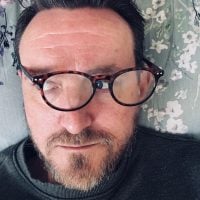View this post on Instagram
March 2022 is an anniversary for me: it’s been one year since my last bout of depression.
Please keep in mind that I’m not suddenly “cured” of depression. I haven’t magically “beaten” the Black Dog.
For a start, given my diagnosis, that’s a scientific impossibility. Just as an alcoholic will forever be an alcoholic regardless of whether they ever take another drink, I’ll always be a depressive.
And that’s an important point to bear in mind as it guards against complacency—the moment I think I’ve got this mental illness thing mastered is the moment I’m opening the door for its return.
So, no, I haven’t vanquished depression. But I have kept it at bay.
And as I want to keep it that way for as long as I possibly can, now seems a good time to think about what I’ve done that’s brought about this equilibrium.
The list is a long one.
First, there was a change in meds—instead of taking an anti-depressant (which had never really worked anyway), I now take a tablet that negates anxiety. As my anxiety often triggered my depression, this has meant less of both.
I haven’t yet attained Buddha-like levels of Zen but—by God—calmness is an underrated emotion. And I wouldn’t have that without the meds.
Then there’s changing jobs. Swapping working at home for the beautiful, wide-open spaces of North Wales has been wondrous. Eco-therapy (being surrounded by nature) is, like calmness, something precious to be embraced.
There’s also meeting new people, going to new places, giving up caffeine, getting back to stand-up comedy…
To be honest, I could go on and on.
But the biggest difference has been in how I approach tackling my depression. And it’s here that I’ll return to a point I made at the outset about vanquishing depression. For not only is that impossible, but I’ve found it’s also a harmful, counter-productive way to think about it.
Mental illness can’t be thought of in such binary terms as “victory” and “defeat.”
Depression isn’t a physical foe of a quantifiable magnitude; it’s not like a general surveying an opposing army and saying,
“Well, I have more men, better supply lines, and occupy the higher ground. Given my logistical and geographical superiority, I’ll win.”
I wish depression could be fought that way, but it can’t.
Depression is a shape-shifting chimaera— one day it takes the form of cavalry, riding toward you on horses waving sabres; the next it’s a stealth bomber, ready to drop its nuclear payload on you undetected.
And just as it changes its form, you must adjust your approach accordingly. You don’t beat a foe like that—you learn to live with it, to adapt to its vicarious moods.
Language such as “war” or “battle” is inaccurate.
I’ve found that instead of seeing my depression as an enemy, it’s been far more beneficial to see it as a lodger. One I don’t really want to live with but, for whatever reason, we’ve been thrown together and are just going to have to find a way to co-exist.
It’s like “Seinfield” but without the laugh track.
It’s not about battling depression but forming an uneasy truce with it. The more we fight, the more conflict there will be—and in that atmosphere, there’s only going to be one winner. And it won’t be me.
Just as you would in any house share, there have to be ground rules. Otherwise, anarchy reigns. As long as we stick to those rules, then we can indulge each other’s foibles.
My depression has to accept that I need to keep on top of the housework or I get grumpy; in return, when I sense my depression beginning to play up, I’ll sit down and listen to it.
Instead of just saying, “It’s my f*cking depression being a d*ck again,” and going off into a tailspin, I’ll show it some empathy and explore why it’s suddenly getting louder. The chances are it’s actually telling me something useful—maybe I need more sleep or I’m stressed.
The majority of the time I can do something about those things and it will quiet again. But I wouldn’t be able to do that if I was constantly just fighting it. The noise of the war would drown it out.
Oh yes, it’s far better to have my depression as an ally than an enemy.
You might be wondering, “Isn’t that exhausting?” Actually, it’s not. Negating the causes and triggers of depression instead of the depression itself means I’m low and anxious less, which means I have more clarity and energy for the things and people that matter.
Don’t get me wrong, I still don’t like it—we may live together but we’re never going to be best friends.
And we still get things wrong; the change from enemies to allies is a big transition. That’ll take longer than a year to settle.
But we’re getting there. Slowly.
As a result, I’m not interested in “beating” depression. Learning to live with it is proving far more fruitful.
And I’m looking forward to our future anniversaries.
~


 Share on bsky
Share on bsky




Read 9 comments and reply